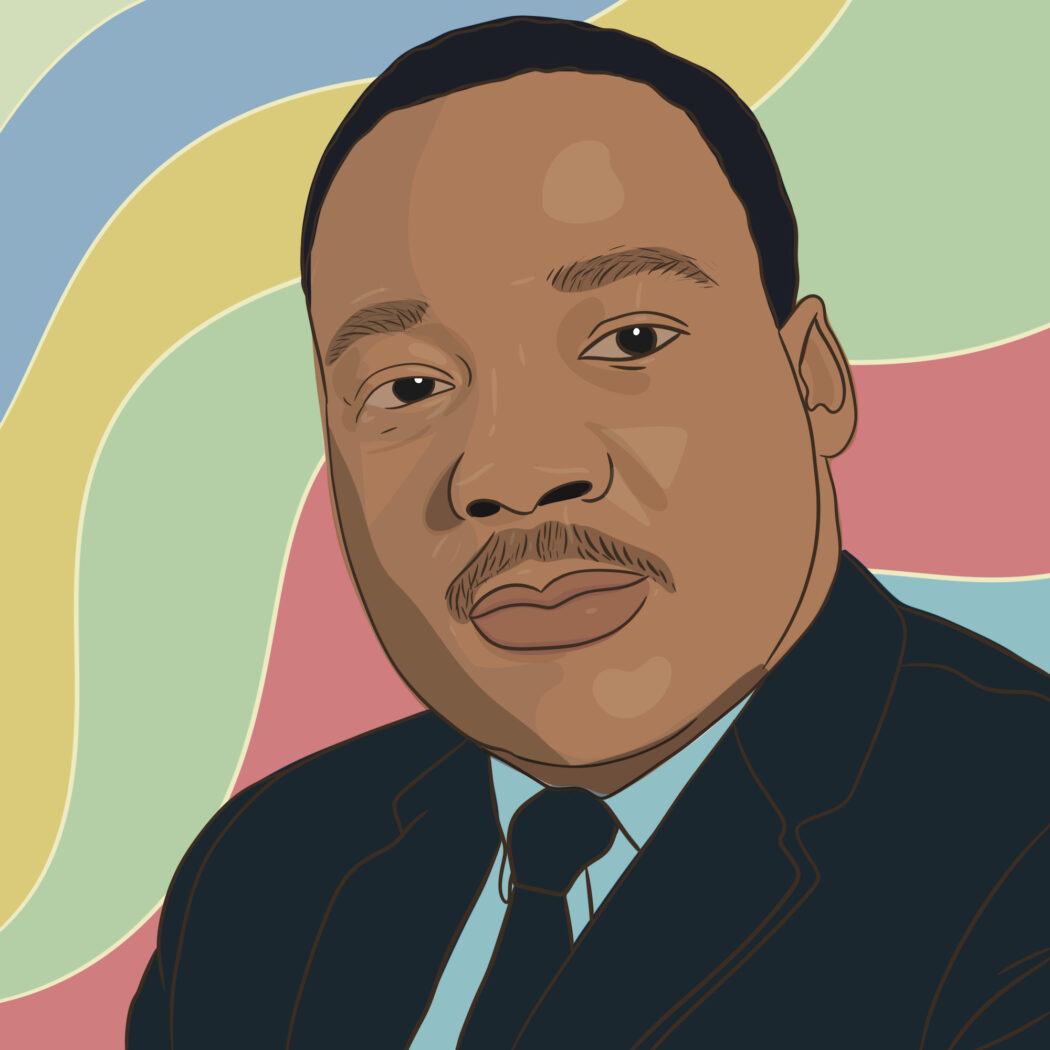Martin Luther King Jr.: A Commemoration at Utah State
There will be no classes on Monday, Jan. 16 to recognize and celebrate Martin Luther King Jr. Day.
Officially recognized in Utah in 2000 and previously known as Human Rights Day, the holiday is celebrated annually on the third Monday of January. It acknowledges Martin Luther King Jr. and his role in the civil rights movement in the United States.
MLK Day is a National Day of Service, a federally-designated day that encourages all communities to volunteer in King’s honor.
Utah State University’s Center for Community Engagement and the Division for Diversity, Equity, & Inclusion are participating in MLK Day by hosting events and activities in the days leading up the holiday, including a public commemoration service at St. John’s Episcopal Church on Jan. 13 at 7 p.m.
Gisella Bandley, coordinator for the center, stressed the importance of commemorating King in the local community.
“Everything he did was a defining moment for society, and in honor of him, we want to improve our community as well,” Bandley said.
Brendan Lee, academic adviser and adjunct instructor in the history department, said King was so influential due to his nonviolent approach to protest.
“I think that his genius, not only in being such an amazing leader and being able to bring people from different walks of life to the movement, was his approach to nonviolence,” Lee said. “The method of that is trying to grab people’s attention, and to shock them awake, and help them realize the terrible things that were happening and that they needed to change.”
King was at the forefront of the civil rights movement and led protests such as the Montgomery Bus Boycott in 1955 and the Birmingham campaign in 1963.
“He really became a prominent figure in the public scene in the 1950s and ’60s,” said Lee. “The national scene — you know, the television was finding its place in American families’ homes — people were seeing the effects of racism and oppression on a whole new level. It’s different when you can see the effects of that happening. It changes the perspective.”
At the time, the state of Utah didn’t have any formal segregation laws, but there were private businesses that participated in discriminatory actions.
According to the Utah Division of State History, Hotel Utah, a prominent hotel in Salt Lake City, refused to allow African Americans to stay there. Lagoon, an amusement park in Farmington, refused to allow white people and African Americans to swim in the same swimming pool.
When a blood transfusion needed to be done, hospitals wouldn’t allow blood from a white person and Black person to mix. Towns and city councils would pass housing covenants that did not allow African Americans to settle or buy homes in certain neighborhoods.
“The main issue that King was trying to resolve was the issue of segregation. I remember growing up in Utah, and it seemed, being in this bubble, you think that segregation was only a thing in the American South,” Lee said. “That it was something distant and far away from us, but segregation was a thing in Utah. A really big thing.”
King burst onto the scene in 1955 after Brown v. Board — a landmark Supreme Court case that ruled segregation in public schools unconstitutional.
“I think things in Utah, because we were so distant from all of that, weren’t really affected as much until the early 1960s,” Lee said. “1963 was a really critical year for Utah because this was the year that King launched the Birmingham campaign, and Utahns are seeing the Birmingham campaign on TV, and it’s shocking people into understanding the need for change. Civil rights was a major issue, and they voted to support that.”
The Birmingham campaign, launched in April 1963, fought in support of the integration of African Americans in Birmingham, Alabama.
“The televised view of the events that were going on in the South really changed a lot of Utahns’ perspectives about civil rights, and it was evident in the next presidential election in 1964,” Lee said. “King was sitting right next to him when he signed it — it was this big deal in the public sphere. And Utahns chose to support Lyndon Johnson in that election — they voted Democrat.”
Still, Lee said the Civil Rights Act didn’t solve everything.
“Racism didn’t go away, right? And I think that’s evident by the fact that King was assassinated four years later,” he said.
For more information on the activities and service opportunities planned for MLK Day, visit usu.edu/dei/mlk and usu.edu/servicecenter/mlk-day.

